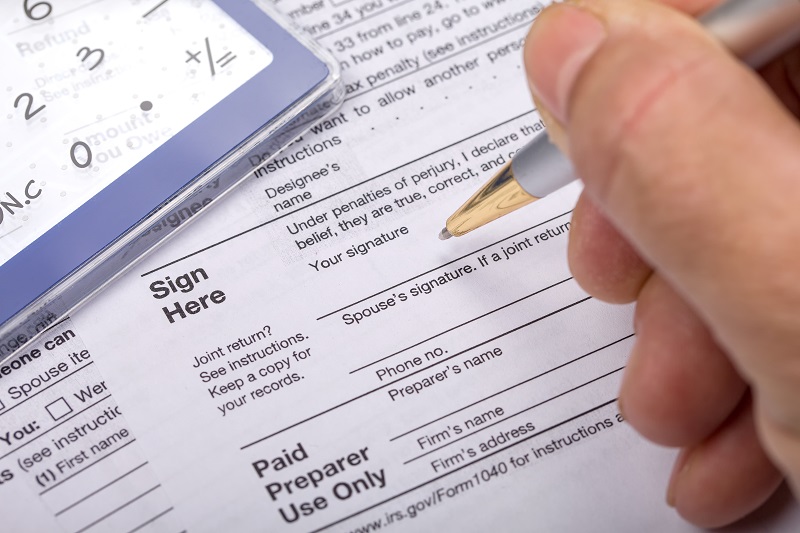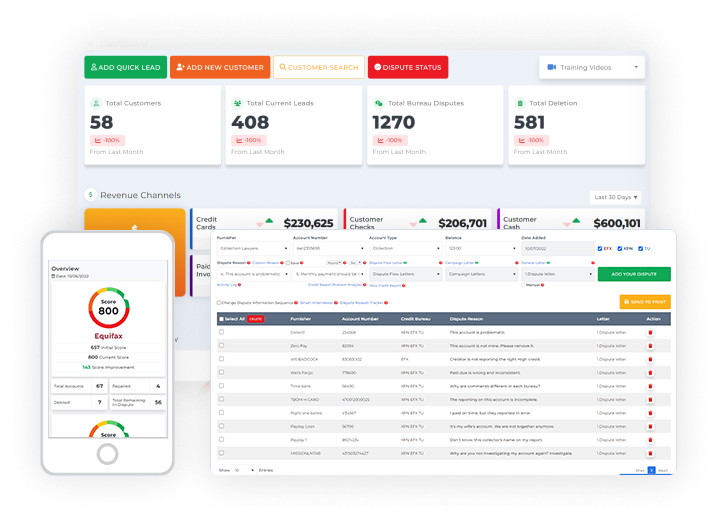Starting a credit repair business in Oklahoma requires a firm grasp of the legal landscape and a commitment to compliance. In this article, we explore the laws and regulations that govern the credit repair industry in Oklahoma, ensuring that your business operates within the bounds of the law and provides reliable services to your clients. By adhering to these guidelines, you can set the foundation for a successful credit repair enterprise in Oklahoma.
Business Structure

Choose a business structure (sole proprietorship, partnership, LLC, corporation) and register your business with the Oklahoma Secretary of State.
Sole Proprietorship:
This is the simplest business structure, where an individual operates the business without formal legal incorporation. The owner has full control over the business and is personally liable for all debts and obligations.
Sole proprietorships are easy to set up and have fewer regulatory requirements, but they offer no personal liability protection.
Partnership:
A partnership is a business structure in which two or more individuals come together to operate a business. Partnerships can be general partnerships, limited partnerships, or limited liability partnerships (LLPs). Each partner contributes to the business in terms of capital, skills, or other resources and shares profits and losses according to the partnership agreement.
Partnerships generally offer more flexibility in management but may expose partners to personal liability for the business’s debts and obligations.
Limited Liability Company (LLC):
An LLC is a hybrid business structure that combines the limited liability protection of a corporation with the flexibility and simpler tax treatment of a partnership or sole proprietorship.
LLCs are popular among small business owners because they offer personal liability protection and pass-through taxation, meaning the profits and losses are reported on the owner’s personal tax return. LLCs are subject to state-specific regulations and filing requirements.
Corporation:
A corporation is a separate legal entity owned by shareholders and managed by a board of directors. Corporations offer the strongest liability protection for owners, as they are not personally responsible for the business’s debts and obligations.
However, corporations are subject to more complex regulatory requirements and double taxation, as both the corporation and the shareholders are taxed on profits. There are different types of corporations, such as C corporations, S corporations, and professional corporations, each with its own tax treatment and regulations.
Nonprofit Organization:
If your credit repair business aims to serve the community without seeking profits, you may consider forming a nonprofit organization. Nonprofits are subject to specific regulations and must obtain 501(c)(3) tax-exempt status from the IRS.
This structure is not typical for credit repair businesses but may be suitable if your primary goal is to provide credit counseling and educational services without making a profit.
Obtain a Federal EIN

Apply for a Federal Employer Identification Number (EIN) from the IRS. This is required for tax purposes.
Here’s how you can apply for an EIN:
Online:
The simplest and fastest method to apply for an EIN is through the IRS website. You can access the online EIN application by visiting the IRS EIN Assistant.
Please note that the online application is only available during specific hours, generally Monday through Friday, 7 a.m. to 10 p.m. Eastern Time. The system will guide you through the application process, and upon completion, you’ll receive your EIN immediately.
By Mail:
You can apply for an EIN by completing Form SS-4, “Application for Employer Identification Number,” and mailing it to the IRS. The form is available on the IRS website.
Mail the completed form to: Internal Revenue Service Attn: EIN Operation Cincinnati, OH 45999
Processing times for mailed applications can take up to four to five weeks.
By Fax:
You can also fax your completed Form SS-4 to the IRS. The fax number is (855) 641-6935. Include a return fax number to receive your EIN by fax within four business days.
By Phone (For International Applicants):
If you’re an international applicant without a legal residence or principal office in the United States, you can apply for an EIN by calling the IRS at +1 (267) 941-1099 (not a toll-free number). The hours of operation are typically Monday through Friday, 6 a.m. to 11 p.m. Eastern Time.
You’ll need to answer the questions on Form SS-4 during the call, and the IRS agent will provide you with your EIN at the end of the conversation.
Before you apply, make sure you have the necessary information handy, such as your Social Security Number (SSN) or Individual Taxpayer Identification Number (ITIN), business name, business address, and details about your business structure and operations.
Remember, obtaining an EIN is free of charge, and you should only apply through the official IRS channels. Be cautious of third-party websites that charge fees for obtaining an EIN on your behalf.
State Tax Registration

Register your business with the Oklahoma Tax Commission to ensure proper tax compliance.
To register your credit repair business with the Oklahoma Tax Commission, follow these steps:
Visit the Oklahoma Tax Commission Website:
Go to the Oklahoma Tax Commission’s website.
Register For a Sales Tax Permit:
If your credit repair business will be selling goods or services subject to sales tax, you will need to apply for a sales tax permit. To do this, click on the “Business” tab on the top menu, and then select “Register for a Permit or License.”
Complete the Oklahoma Business Registration Packet online, which will include providing your business information and Federal EIN.
Register For Withholding Tax:
If your credit repair business has employees, you may need to register for withholding tax. Under the “Business” tab on the top menu, select “Withholding.” You will find instructions on how to register for withholding tax and report the tax withheld from your employees’ wages.
Register For Other Taxes:
Depending on your business structure and specific activities, you may need to register for additional taxes. Review the information available on the Oklahoma Tax Commission’s website to determine if any other taxes apply to your business, and follow the instructions provided for each type of tax.
Create an Account For Online Tax Filing and Payment:
To make tax filing and payment more convenient, consider creating an online account with the Oklahoma Tax Commission. This will enable you to file tax returns, make payments, and manage your tax accounts online.
For more detailed information and assistance, you can contact the Oklahoma Tax Commission directly:
Phone: (405) 521-3160 Email: [email protected]
Remember, this is general information, and you should consult with a tax professional to ensure you are meeting all the necessary tax requirements for your credit repair business in Oklahoma.
Licenses and Permits

Obtain any required local licenses or permits, which may vary depending on your location and the type of credit repair services you offer. Check with your local government offices for any requirements specific to your area.
It’s important to consult with an attorney or a local expert to ensure you’re meeting all necessary requirements. Some general licenses and permits you may need to consider include:
Business License:
Depending on your local jurisdiction, you may need a general business license to operate your credit repair business. Check with your city or county government offices for requirements specific to your area.
Fictitious Business Name Registration (DBA):
If you plan to operate your credit repair business under a name different from your legal name or your business entity’s name, you may need to register a fictitious business name, also known as a “Doing Business As” (DBA) name. In Oklahoma, you can register a DBA name with the county clerk’s office in the county where your business is located.
Surety Bond:
As mentioned in a previous answer, Oklahoma law (Oklahoma Statutes Title 24 §131) requires credit services organizations to obtain a surety bond in the amount of $10,000 to protect clients in case of fraudulent or deceptive practices. Obtain a surety bond from a bonding company and file it with the Oklahoma Secretary of State.
Federal and State Tax Registrations:
As discussed previously, register your business with the Oklahoma Tax Commission for state tax purposes and obtain a Federal Employer Identification Number (EIN) from the IRS.
Zoning and Land Use Permits:
If your credit repair business will operate from a physical location, such as an office, make sure the location complies with local zoning ordinances. Check with your city or county government offices for zoning requirements and obtain any necessary permits.
Professional Liability Insurance:
While not a license or permit, it’s a good idea to obtain professional liability insurance to protect your business from potential claims related to your services.
Remember, this is general information, and specific requirements may vary depending on your location and the nature of your credit repair business. Consult with an attorney, local government offices, or other experts to ensure you’re meeting all the necessary requirements for operating a credit repair business in Oklahoma.
Credit Repair Organizations Act (CROA) Compliance
As a credit repair business, you must comply with the Federal Credit Repair Organizations Act (CROA), which prohibits certain deceptive practices and requires the disclosure of specific information to clients. Familiarize yourself with CROA and ensure your business practices are in compliance.
24 O.S. § 131 is a section of the Oklahoma Statutes Title 24, which pertains to the Oklahoma Credit Services Organization Act. Section 137 specifically addresses penalties for violating provisions of the Act.
According to 24 O.S. § 131:
Any person who violates any provision of the Oklahoma Credit Services Organization Act is guilty of a misdemeanor and, upon conviction, shall be punished by a fine not to exceed One Thousand Dollars ($1,000.00), or by imprisonment in the county jail for a term not to exceed one (1) year, or by both such fine and imprisonment.
Bond Requirement

Oklahoma law (Oklahoma Statutes Title 24 §131) requires credit services organizations to obtain a surety bond in the amount of $10,000 to protect clients in case of fraudulent or deceptive practices. Obtain a surety bond from a bonding company and file it with the Oklahoma Secretary of State.
Oklahoma Statutes Title 24 §133 is a part of the Oklahoma Credit Services Organization Act. This section specifically addresses the surety bond requirement for credit services organizations operating in the state.
According to Oklahoma Statutes Title 24 §133:
Before conducting business in Oklahoma, a credit services organization must obtain a surety bond issued by a surety company authorized to do business in the state.
The bond must be in the amount of $10,000 and should be in favor of the state for the benefit of any person who is damaged by any violation of the Oklahoma Credit Services Organization Act.
The bond should cover all locations where the credit services organization conducts business.
Contract Requirements

Your credit repair contracts must comply with Oklahoma law (Oklahoma Statutes Title 24 §134) and include specific information such as the terms and conditions of payment, a detailed description of the services to be provided, and a notice of cancellation rights, among other requirements.
24 O.S. § 137 is a section of the Oklahoma Statutes Title 24, which pertains to the Oklahoma Credit Services Organization Act. Section 133 specifically focuses on the required disclosures that credit services organizations must provide to their clients.
According to 24 O.S. § 137:
Before executing a contract or agreement with a consumer or receiving money or other valuable consideration, a credit services organization must provide the consumer with a written statement containing the following information:
- The consumer’s right to review any file on the consumer maintained by a consumer reporting agency, as provided under the federal Fair Credit Reporting Act, 15 U.S.C. Section 1681 et seq.
- The consumer’s right to dispute the completeness or accuracy of any item contained in any file on the consumer maintained by a consumer reporting agency, as provided under the federal Fair Credit Reporting Act, 15 U.S.C. Section 1681 et seq.
- A complete and accurate statement of the consumer’s right to have negative credit information that is current and accurate removed from a credit report, as provided under the federal Fair Credit Reporting Act, 15 U.S.C. Section 1681 et seq.
- A notice that the information required to be provided under this section is required by state law to be provided to the consumer before the credit services organization may execute a contract or agreement with the consumer or receive money or other valuable consideration.
The credit services organization must maintain on file or microfilm for two years after the date the statement is provided to the consumer a copy of the statement, signed by the consumer, acknowledging receipt of the statement.
Title 24 §134 falls under the Debt Adjustment and Credit Counseling Act. This Act provides regulations for credit counseling agencies and debt management organizations to ensure they operate in a fair, transparent, and legally compliant manner. These regulations help protect consumers who seek credit counseling or debt management services.
Title 24 §134 specifically addresses the requirement for a written contract between a debtor and a credit services organization. The contract must detail the services to be provided and the terms and conditions of the agreement, among other things. The statute also outlines the cancellation rights of the debtor and the refund policy in case of contract termination.
Maintain Records

Keep detailed records of all transactions and correspondence with clients and credit bureaus, as required by Oklahoma law.
Familiarize Yourself with Relevant Laws and Regulations:
Understand the federal and state laws governing credit repairs, such as the Credit Repair Organizations Act (CROA) and any applicable Ohio state laws. This will help ensure your compliance with legal requirements and best practices for record-keeping.
Retain all Relevant Documents:
Keep all documentation related to your credit repair efforts, including credit reports, correspondence with credit bureaus and creditors, and any dispute letters or evidence you have submitted. Organize these documents in a systematic manner, such as by date, type, or creditor.
Keep Copies of Correspondence:
Whenever you send a letter to a credit bureau, creditor, or any other party involved in the credit repair process, make sure to keep a copy for your records. This will help you track your progress and serve as evidence if you need to take legal action.
Document Your Actions:
Maintain a log of your credit repair activities, including dates, actions taken, and outcomes. This can be a simple spreadsheet or a more sophisticated tracking system, depending on your needs and preferences.
Maintain Client Records (if applicable):
If you are a credit repair professional, maintain detailed records for each client, including their contact information, signed contracts, records of payments, and copies of all correspondence and documentation related to their credit repair process.
Implement a Secure Storage System:
Store your records in a secure location, whether digital or physical, to protect them from unauthorized access, loss, or damage. Implement appropriate security measures, such as encryption for digital files and a secure, locked location for physical documents.
Retention Period:
Keep your records for an appropriate period, as required by law or as necessary to protect your interests. Federal and state laws may have specific record retention requirements, so be sure to familiarize yourself with these guidelines.
Stay Updated on Legal Changes:
Laws and regulations can change over time. Stay informed about any updates to federal or Ohio state laws related to credit repair and adjust your record-keeping practices accordingly.
Marketing and Advertising

Ensure that you’re marketing and advertising materials comply with state and federal laws, including the Federal Trade Commission’s guidelines and the CROA.
Here are some guidelines to help you properly market and advertise your credit repair services:
Understand and Follow Federal Regulations:
Familiarize yourself with the Credit Repair Organizations Act (CROA), which governs credit repair services on the federal level. The CROA prohibits deceptive practices, false advertising, and misleading claims. Ensure your marketing and advertising materials are in compliance with these regulations.
Be Aware of Oklahoma State Regulations:
Understand and comply with any state-specific regulations governing credit repair services in Oklahoma. For example, the Oklahoma Debt Adjustment and Credit Counseling Act regulates credit services organizations in the state.
Be Transparent and Accurate:
When creating marketing materials, be transparent about the services you provide and avoid making unrealistic promises or guarantees. Clearly state the limitations and potential outcomes of your services, and avoid claiming that you can remove negative information from credit reports if it is accurate and timely.
Educate Your Audience:
Provide valuable information and resources to potential clients that can help them understand the credit repair process and their rights. By offering educational content, you can position your business as a trusted authority in the field.
Target Your Audience:
Identify your target audience and tailor your marketing messages to address their specific needs and concerns. This could involve creating targeted advertisements, social media content, or blog posts that appeal to different segments of your audience.
Utilize Various Marketing Channels:
Leverage different marketing channels, such as online advertising, social media, email marketing, content marketing, and local events, to reach a wider audience and increase your visibility.
Track and Measure Your Marketing Efforts:
Monitor the performance of your marketing campaigns and adjust your strategies based on the results. By tracking your marketing efforts, you can identify which methods are most effective and allocate your resources accordingly.
Maintain a Professional Image:
Ensure your marketing materials and business presence, both online and offline, reflect a professional image. This includes having a well-designed website, professionally designed marketing materials, and consistent branding across all platforms.
Seek Testimonials and Referrals:
Encourage satisfied clients to provide testimonials or refer friends and family members to your business. Positive word-of-mouth marketing can be an effective way to build trust and credibility among potential clients.
Stay Updated on Industry Trends and Changes:
Stay informed about any changes in credit repair laws and regulations, as well as industry trends and best practices. By staying up-to-date, you can adjust your marketing strategies accordingly and remain compliant with legal requirements.
Continuing Education

Stay informed of industry trends, updates to credit repair laws, and best practices by participating in continuing education opportunities, such as industry conferences, webinars, or workshops.
Join Professional Associations:
Becoming a member of professional associations, such as the National Association of Credit Services Organizations (NACSO) or the American Credit Repair Academy (ACRA), can provide access to industry news, events, resources, and networking opportunities.
Attend Industry Conferences:
Industry conferences and events can offer valuable insights, networking opportunities, and access to expert speakers. These events often cover the latest trends, best practices, and regulatory updates related to credit repair.
Participate in Webinars and Online Courses:
Many organizations and educational institutions offer webinars, online courses, and workshops on credit repair topics. These online resources can help you stay informed and enhance your skills without the need for physical attendance.
Subscribe to Industry Newsletters and Publications:
Subscribe to newsletters, blogs, or publications that focus on credit repair and related industries. These resources can provide regular updates on industry trends, changes in laws and regulations, and best practices.
Join Online Forums and Social Media Groups:
Participate in online forums or social media groups dedicated to credit repair professionals. These communities can provide opportunities for peer-to-peer learning, sharing experiences, and staying updated on industry news.
Network with Industry Professionals:
Develop relationships with other credit repair professionals, attorneys, and experts in the field. Networking can provide opportunities to learn from others, share insights, and stay informed about changes in the industry.
Monitor Regulatory Agencies and Government Websites:
Keep an eye on websites of regulatory agencies such as the Federal Trade Commission (FTC) and the Consumer Financial Protection Bureau (CFPB) for updates on laws and regulations related to credit repair.
Utilize Legal Databases and Resources:
Access legal databases, such as LexisNexis or Westlaw, to stay informed about updates to credit repair laws and court decisions that may impact the industry.
Attend Local Workshops and Seminars:
Look for workshops, seminars, or training events in your local area that focus on credit repair and related topics. These events can help you deepen your understanding of best practices and stay informed about changes in your region.
Schedule a regular time for professional development and make a commitment to staying informed about industry trends, updates to credit repair laws, and best practices. By dedicating time to ongoing education, you can ensure your credit repair business remains current and compliant.
Ready to start your credit repair business in Oklahoma?
Make sure you are informed and compliant with the latest state laws.
Click now to learn more.
As you conclude this guide on the laws for starting a credit repair business in Oklahoma, remember that compliance and consumer protection are at the core of your enterprise. By familiarizing yourself with the state’s regulations, promoting transparency, and offering valuable services, you can build a reputable and thriving credit repair business.
Bonus: Now that you have read this article, why not take your new skill and start your own credit business helping others? We have free training that can help you do just that.



